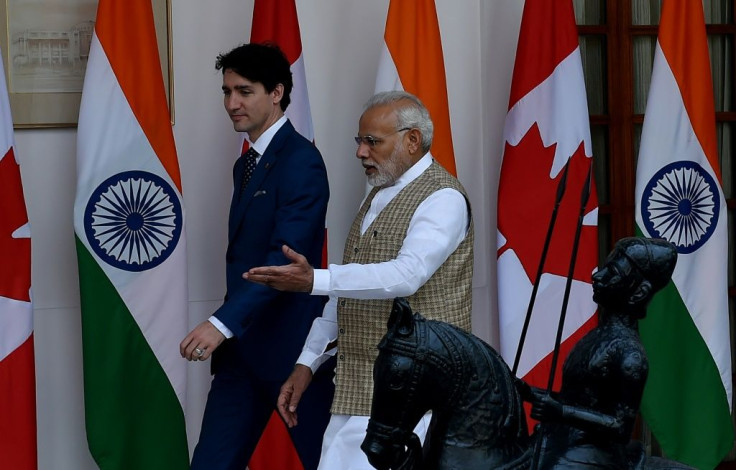India's Foreign Minister Hits Back At Canada, Slams 'Organized Crime, Violence, Extremism' In The Country

KEY POINTS
- Jaishankar spoke about the ongoing India-Canada row at an event in New York
- He said India has been "badgering" Canada about "organized crime leadership" that operates in the country
- India-Canada ties plunged to a new low last week after Ottawa accused New Delhi of being involved in death of Sikh separatist Hardeep Singh Nijjar
Amid ongoing diplomatic tensions, India's external affairs minister S Jaishankar has hit back at Canada, saying the North American country saw a lot of "organized crime, violence and extremism."
He said India is open to looking at any information Canada provides related to the killing of Sikh separatist Hardeep Singh Nijjar.
"One, we told the Canadians that this is not the government of India's policy," he said at a Council on Foreign Relations event in New York on Tuesday. "Two, we told the Canadians saying that look, if you have something specific, if you have something relevant, you know, let us know – we are open to looking at it."
India-Canada ties plunged to a new low last week after Canadian Prime Minister Justin Trudeau claimed the country had credible intelligence that linked India to the murder of Nijjar in June.
New Delhi denied the allegations and suspended new visas for Canadian citizens, citing what it called a deteriorating security environment.
In his remarks Tuesday, Jaishankar talked tough on "organized crime" in Canada, referring to separatists like Nijjar. The separatists form a small but vocal part of Canada's Sikh diaspora and are supporters of the Khalistan movement — a decades-long campaign for a separate homeland for Sikhs in Punjab state.
"We have actually been badgering the Canadians," Jaishankar said. "We have given them a lot of information about organized crime leadership, which operates out of Canada. ...There are a large number of extradition requests."
"The picture is not complete without the context," he added. "You also have to appreciate that in the last few years, Canada actually has seen a lot of organized crime, you know, relating to, you know, the secessionist forces, organized crime, violence, extremism, they are all very, very deeply mixed up."
Jaishankar added the situation has put Indian diplomats under threat and led to attacks on Indian consulates.
On India-China relations, Jaishankar said ties between the two countries have been in an "abnormal state" since the 2020 Galwan clash.
It is "possibly longer than medium-term issue," Jaishankar said, adding the degree of tension between India and China "has consequences for everybody else."
"You know, one of the pleasures of dealing with China is that they never quite tell you why they do things. So you often end up trying to figure it out. And it's always, there's certain ambiguity out there," Jaishankar said. "It is very hard to try to be normal with a country which has broken agreements and which has done what it has done. So if you look at the last three years, it's a very abnormal state."
© Copyright IBTimes 2025. All rights reserved.




















